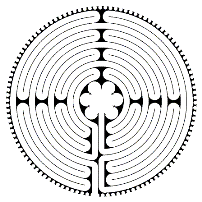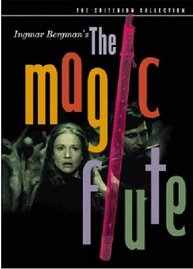With those preliminary matters noted, I now return to the present question. But first, let me remind us of an earlier question that is relevant to this one.
Some time ago, I asked the question: "Is truth the measure of facts and the criteria for your reasoning or do you prefer working with fallacies?" here.
Thus, in part, my current question is a follow-up. If we do, indeed, best manage change on the basis of truth and not fallacies, then is it not prudent to better understand how that effort to deal with truth is limited not just by fallacious or counterfeit arguments, but also by our co-workers fundamental understanding of how the diverse religions that we adhere address truth?
So, with that order in mind, I repeat: Where does the truth lie in the plurality of the world's organized and institutional religions?
Internationally acclaimed author, Mortimer Adler, has written an important philosophical analysis of this question in his book Truth in Religion.
Thanks, as always, for participating in this Q/A. Remember: Only the brave need respond. Click here for responses on LinkedIn.
John Darrouzet
PPS: While you are pondering your response, I will be continuing my read of Truth And Tolerance by Pope Benedict XVI to see if he has any helpful light to shine on this issue as well as on the subsequent discussion I propose to offer about tolerance.
Truth in Religion
Against the background of the percentages of adherents of religion as noted in the linked Chart, here is my edited version of Adler’s (1900) summary of his argument (p. 101, ff):
1. Plurality is desirable and tolerable in perpetuity:(a) in all matters of taste, personal preference, and predilection, and in the expressions of individual likes and dislikes; (b) in all matters of public policy and legislation, concerning which reasonable men [and women] can disagree about which decisions that must be made require appealing to a majority vote; and (c) with regard to myths, fictional narratives, and even religions that claim to have only poetical, not logical or factual, truth.
[The latter signifies the kind of truth that belongs to propositions or judgments, descriptive or prescriptive that are subject to contradiction. Such truth, if descriptive, is factual truth, giving us knowledge of the observed phenomena or of reality. If prescriptive, it is normative truth about goods to be sought or actions to be done. The former signifies the kind of truth that is not subject to contradiction, the kind of truth that belongs to narratives that, though differing, are in no way incompatible with one another. The line that divides fact from fiction and fantasy also divides logical from poetical truth.]
2. Pluralism may be tolerated under conditions in which matters of logical and factual truth are disputed and in which the dispute remains unresolved, but not in perpetuity; for with regard to such matters the ultimate goal to be sought is agreement, not diversity of opinion.
3. Utterances are in the realm of poetical truth if they are about what is possible and it they are not subject to contradiction. In contrast, utterances that are about what is actually the case and are subject to contradiction are in the realm of logical and factual truth. [In reality, nothing can both be and not be at the same time. Anything which does exist cannot both have and not have a certain attribute at one and the same time. In logic then, to answer a question by saying “Yes” and “No” to it at the same time is to violate the principle of non-contradiction and defeats the purpose of human communication. In matters of fact, to say something is when it is not is to lie.] (a) In the realm of discourse where poetical truth is to be found, utterances can have maximum diversity without any incompatibility; (b) in the realm of discourse where logical and factual truth is to be found, utterances that are contrary or contradictory are incompatible. The truth of one excludes the truth of the other, whereas one utterance that is poetically true never excludes another from also being poetically true, no matter how divergent the utterances may be.
4. With regard to truth in religion and truth in science or philosophy, there are three positions:
(a) that of the Arabic philosopher Averroes in his dispute with Algazeli: The truths of religious beliefs and the truths of science or philosophy are not truths of the same kind. The former are truths of the imagination and are poetically true; the latter are truths of reason and are logically true. Therefore, they cannot come into conflict or be incompatible.
(b) that of the Christian theologian Aquinas in his dispute with the Latin Averroists of his day: The truths of faith and the truths of reason are truths of the same kind; they are logical and factual truths. Any apparent conflict between what religious belief claims to be true and what science and philosophy claims to be true must be capable of resolution because no incompatibility can exist in the realm of logical and factual truth.
(c) that of "Averroism" when this term is used in a disapprobative sense for those who, finding it impossible to reconcile the truths of religion with the truths of science, keep them separate in logic-tight compartments in order not to confront their incompatibility.
5. Religious beliefs or articles of religious faith cannot be proved or established as true by the marshalling of reasons or by the amassing of evidence, but they can be disproved or discredited by being shown to be incompatible with established truths of science or philosophy.
6. To believe that which is not only beyond proof but is also discredited by established knowledge to the contrary is superstitious, not religious, belief.
7. At this juncture in the world's history, mathematics, the exact sciences, and technology are transcultural; what logical and factual truth they have is the same globally. History, the social sciences, and philosophy are not yet transcultural, but may become so. Until they do, the established knowledge to be found in the natural sciences serves to test the claims of religious beliefs to be logically and factually true, as well as similar claims made by this and that philosophical doctrine.
8. Among the major religions of the world, all of which conform to the proposed definition of religion, only three religions claim to have a supernatural foundation to be found in a sacred scripture that purports to be a divine revelation.
[Adler’s proposed definition of religion: The organized and institutionalized forms of human conduct and belief that involve communities so constituted that an individual is either a member of it or an outsider, and the membership of the community consists of a fairly large population, with all or most of the following common traits: some form of worship, separating the sacred or holy form the secular and the profane; some form of a separation between a priesthood and the laity (except for the Quakers); some form of codes of religious laws, precepts, or prescriptions that outline, in varying degrees of detail, a way of life or a style of conduct to be followed by those who seek salvation, conceived as the attainment of a spiritual goal, never as one or another form of worldly success; and some form of creed (a set of explicitly stated beliefs that constitute its declared dogmatism) that communicants or members of the community are obliged to affirm as true.]
(See Chart)
(a) The three religions distinguished by this claim are Judaism, Christianity, and the religion of Islam.
(b) Among the other religions that satisfy the requirements set forth in the definition of religion, only some claim to have logical and factual truth, but the truth they claim is to have is of human, not divine, origin.
9. Here are two principles and three considerations that should be employed in order to reach a decisive determination of where the truth lies among the world's religions:
(a) The principle of the unity of truth. All of the diverse parts of the whole truth must be compatible with one another regardless of the diversity of the ways in which these parts of truth are attained or received.
(b) The principle of transculturality. At a given time, the truths of technology, mathematics, and the exact natural sciences are transcultural; whatever else claims to be true should also become transcultural if it is found to be compatible with the scientific truths that are now transcultural.
To become transcultural, a body of religious beliefs and precepts must be compatible, at a given time, with the established scientific truths that are now transcultural.
To become transcultural, philosophical doctrines must also be compatible, at a given time, with the established scientific truths that are now transcultural.
When philosophy becomes as transcultural as the established science with which it is compatible, the truths established by philosophical theology should serve as the most decisive criterion whereby to discover where the truth lies among the religions of the world.
10. In light of these principles and their considerations, [Adler] would be compelled to say that there cannot be logical and factual truth in any of the Far Eastern religions that are cosmological rather than theological in their orthodoxies, nor in any of the theological religions that are polytheistic rather than monotheistic.
[This answer, Adler adds, is based on the conclusions reached in his book How to Think About God: A Guide for the 20th-Century Pagan.]
The truth in religion, then, if it is to be found at all, lies in the three monotheistic religions of Western origin --- in Judaism, in Christianity, or in the religion of Islam, but where?
11. Adler addresses the probable objections of people whose religions rely heavily on mythology in two ways.
(a) First he addresses the probable objections of Joseph Campbell, author of The Inner Reaches of Outer Space: Metaphor as Myth and as Religion and co-author, with Bill Moyers, of The Power of Myth. Campbell's view is succinctly summarized: None of the world's organized and institutionalized religions, especially those that are explicitly creedal, is anything but a mythology, and none has either truth or falsity in the logical sense of the terms.
Adler demonstrates that this approach of Campbell's is fundamentally dogmatic materialism. He notes that Campbell states in his books, though not on television, that no modern mind, instructed by the natural sciences, and especially the social sciences, could possibly give any credence to the religious beliefs of Orthodox Jews or to the articles of Christian faith summarized in the Nicene Creed. A fortiori, Campbell would say the same thing about the faith of Islam, as well as the beliefs held by all the great religions of the Far East.
Adler then cites an article in The New York Review of Books (9/28/1989, pp.16-19) where Campbell apparently uses the word "bliss" (as in follow your bliss) for a purely psychological state of contentment experienced by anyone who manages to get what he or she individually wants. Adler notes that this kind of bliss is quite contrary to the ancient ethical conceptions of happiness or morally good life as a whole, attainable only by moral virtue and the blessings of good fortune.
(b) Second, he addresses the probable objections of those adhering to religions in the Far Eastern cultures by diagnosing that in them there is a latent or explicit Averroism. For them, there are two distinct realms of truth: the truths of science and technology, and the truths of religious faith, of religious beliefs, and rules of conduct.
"In these Far Eastern cultures, such schizophrenia is regarded as a healthy state of mind. It is welcomed and espoused." The embrace rather than fight contradiction because contradictions in their view lie at the very heart of reality. "It may appear to be nothing but an expression of parochial Western prejudice on my part.... Nevertheless, I am compelled to do so. If Averroism is wrong in the West, it cannot be right in the East. If the only way to avoid the error of Averroism in the West is to regard truth in the domain of religion as merely poetical truths --- truths of fiction, not of fact --- then that must also be the only way to avoid the error of Averroism in the Far East.
["The espousal of Averroism in some of the cultures in the Far East may be psychologically comforting, even an escape mechanism for avoiding extremely difficult problems involving incompatible alternative between which individuals do not want to choose."]
"The conclusion is that the schizophrenia resulting from an Averroistic duality of truth in the domains of science and religion (where neither domain regards its truth as poetical or fictional rather than factual, is not a healthy state of mind and should not be welcomed and embraced.
12. Adler concludes: "...it is prudent for a philosopher to suspend judgment with regard to which of these religions is the truer and which is less true. As a philosopher concerned with truth in religion, I would like to hear leading twentieth-century theologians speaking as apologists for Judaism, Christianity, and Islam engage in a disputation.
The question at issue would be which of these three religions had a greater claim to truth. It being conceded that each has a claim to some measure of truth, which of the three can rightly claim more truth than the other two?"




















































